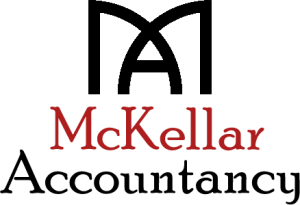In this week’s Enews, there is news on a recommendation from the Low Incomes Tax Reform Group (LITRG) to make it easier for state pensioners to pay tax owed via a Pay as You Earn Scheme. There is also news on Chancellor Rachel Reeves’ ‘blitz on business bureaucracy’ and findings from the British Chambers of Commerce’s (BCC’s) latest Quarterly Recruitment Outlook to update you on.
Give State Pension its own PAYE scheme, says LITRG
The Treasury should make it easier for state pensioners to pay any tax they owe with a Pay as You Earn (PAYE) scheme, says the Low Incomes Tax Reform Group (LITRG).
The LITRG told the Treasury that there is a ‘pressing need’ to change the way the payments are taxed to make the process easier to understand and manage.
This is due to the increasing number of pensioners finding out that they owe income tax on their state pension for the first time. The LITRG has recommended that the State Pension be given its own PAYE scheme, so that any tax is collected at source by the DWP before State Pension payments are made.
Currently, any tax due on a person’s State Pension is collected by adjustments to tax codes, self assessment or simple assessment.
Sarah Weston, Technical Officer at the LITRG, said: ‘The continued freezing of the tax-free personal allowance and triple-lock pension increases mean growing numbers of people are facing a tax bill on their State Pension for the first time.
‘Some people are unaware of this and can end up with a nasty shock if they receive an unexpected tax bill from HMRC after the end of the tax year. For those who are affected, it can be unclear and confusing.
‘We think that bringing the State Pension into its own separate scheme of PAYE would be a simplification that will make it easier for HMRC to collect the tax it is owed.’
Internet link: LITRG website
Chancellor announces ‘blitz on business bureaucracy’
Chancellor Rachel Reeves recently announced a ‘blitz on business bureaucracy’, with cuts to red tape that the government says will save firms £6 billion.
Ms Reeves says the government will be ‘scrapping pointless paperwork’ and speeding up planning to deliver on the Prime Minister’s 25% admin reduction target – a central commitment in the Modern Industrial Strategy.
The government says the crackdown on ‘needless form-filling will see over 100,000 firms qualify for simpler corporate reporting rules’, removing the need for small business owners like family-run cafes to submit lengthy Director reports to Companies House.
Businesses will also save time and money when building, with the Chancellor setting out plans for digital planning checks that could see developers sending photo evidence to authorities online which are then approved using trained AI models.
John Foster, Chief Policy and Campaigns Officer at the Confederation of British Industry (CBI), said: ‘There is a fierce urgency in the need to get the UK economy growing at a sustainable rate so it can make a meaningful difference to our nation’s prosperity. For businesses to fully contribute to this mission they need room to invest, not be constantly battling costly regulation that adds little or no value.
‘The government deserves credit for recognising this challenge and taking action to address it. We now need business and government to work together at pace, to deliver a growth-enabling regulatory system that sensibly balances appetite to risk while giving businesses confidence to invest and thrive.’
Internet link: GOV.UK, CBI website
Budget should tackle hiring issues, says BCC
The British Chambers of Commerce (BCC) has called for Chancellor Rachel Reeves to use the Autumn Budget to combat ‘persistent’ hiring problems.
According to the BCC’s latest Quarterly Recruitment Outlook, 54% of businesses have attempted to hire employees in the last three months. However, most firms continue to face recruitment challenges, with 75% of employers stating they have experienced issues.
Just 22% of businesses hired new employees in the third quarter of this year, the BCC found. 25% reported that they intend to increase their workforce in the next three months.
‘Employers are battling against sky-high employment costs and widespread skills shortages,’ said Jane Gratton, Deputy Director of Public Policy at the BCC.
‘With 72% of firms saying costs are putting pressure on them to raise prices, the spectre of higher inflation will continue to hover.
‘The government should use the tax system to help people stay in – or quickly return to – employment when they experience ill health. Tax breaks for health services that businesses provide to their workforce are an obvious solution, to protect people’s livelihoods and keep skills in the workforce.’
Internet link: BCC website




